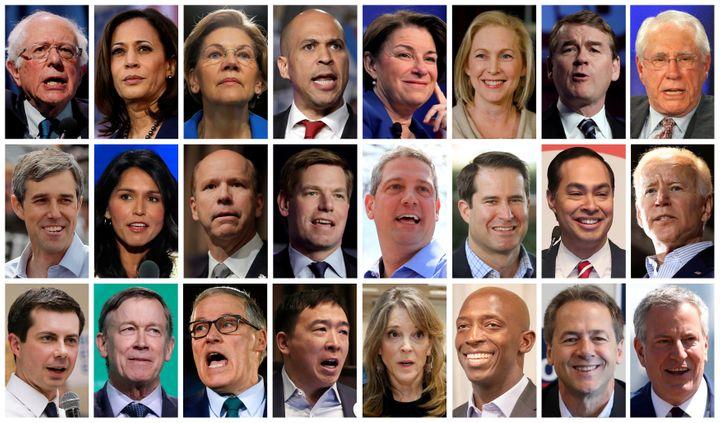For all the coverage following the 2020 Democratic candidates’ every move, there seems to be a blind spot regarding foreign policy. Despite the frequent refrain that “the U.S president is the ‘leader of the free world,’” most candidates believe that there is little incentive to frequently discuss foreign policy while campaigning. Everyday Americans are far more likely to worry about issues that they have a direct impact on their everyday life. A candidate can gain more political ground discussing healthcare than they would debating the eighteen-year military quagmire in Afghanistan. It should thus come as little surprise that during the past three rounds of debates, foreign policy has had very little stage time. That said, the few positions that the candidates have outlined serve as an interesting mirror to their national policies.
According to Paul Musgrave, a political scientist at the University of Massachusetts Amherst, both Joe Biden and Pete Buttigieg are running as the “Obama candidate.” They believe that while the international institutions could use some work, they are for the most part structurally sound. The two are thus likely to work to maintain the delicate balance between existing relationships with foreign countries and addressing pressing crises. For example, according to Al Jazeera, both Biden and Buttigieg refrain from labelling the occupation of the West Bank, a “humanitarian crisis” and instead call for a two-state solution. The similarity between the two candidates comes as somewhat of a surprise considering Buttigieg has frequently positioned himself as the young newcomer with fresh ideas and policies that contrast Biden’s old-fashioned centrism. Despite their differences in domestic policies, it looks like both Biden and Buttigieg are insistent on sitting down and not rocking the boat while abroad.
On the other side of the political spectrum are Bernie Sanders and Elizabeth Warren, who Musgrave says are running as the “progressive candidates.” They both want to pursue foreign policy that reforms international institutions and reduces international insecurity. This is largely consistent with their domestic policies, as Sanders and Warren have said on numerous occasions that they believe structural change is necessary to create a more fair and more equal society. They are thus unafraid to make polarizing statements and disrupt existing ties to U.S. allies. Sanders, for example, responded to Israel’s occupation of the West Bank by suggesting that he would cut U.S military aid to Israel, and then posted a video comparing Israel to apartheid-era South Africa. Politicians of years past would balk at making similar statements, but candidates like Warren and Sanders believe that change cannot happen without drastic action. Interestingly enough, this stance abroad makes them in some respects curiously similar to their Republican opponent, President Donald Trump. Both Sanders and Warren have shown that they are concerned by the threat that trade with China poses to America. Sanders even went further than the president and labelled China as a currency manipulator. Similarly, Warren advocated for aggressive tariffs against the country. This simply goes to show that living under a Warren or Sanders presidency would in many ways be drastically different from the presidency under Trump, but some things may be strikingly similar. When it comes to foreign policy, the labels of progressive and conservative may not be as far apart as we think.
The world of foreign policy is a different animal from the dominating conversations about the 2020 election. When one takes a closer look at the candidates and their proposals, some find similarities where one would expect there to be none; these unexpected similarities should be troubling to the average American. Without clearly articulated information about foreign policy during debates and rallies. It is difficult to vote for a candidate that fully represents one’s interests. Candidates should also be wary of brushing foreign policy under the rug. Dramatic domestic proposals can help catapult candidates to the presidency, but international failures are more than capable of removing them from office.






